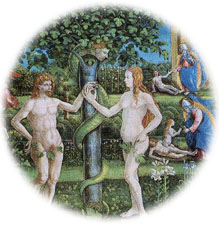

When a student writes about a poem or story, how can the student's reader (especially the instructor) say the paper is "right" or "wrong"? When it comes to literature, isn't it all a matter of opinion? What makes the instructor's opinion more valid than the student's?
 In writing about literature, there is room, indeed, for a great deal of subjectivity. We respond to art with feelings, and feelings are never wrong. Still, in trying to document how feelings arise — to describe, as exactly as possible, those elements within the text that spark those feelings in us — some people will do a better job than others.
In writing about literature, there is room, indeed, for a great deal of subjectivity. We respond to art with feelings, and feelings are never wrong. Still, in trying to document how feelings arise — to describe, as exactly as possible, those elements within the text that spark those feelings in us — some people will do a better job than others.
It is, of course, possible to be simply wrong about literature, to base our feelings and judgments on a misreading — for a variety of reasons.
In introducing a poem by Theodore Roethke, once, I told students that Roethke's father operated greenhouses, and that little Theodore apparently spent a great deal of time there in his youth. Memories of hours spent there were precious to the poet and are recounted in a number of poems. There are many vivid lines about Roethke's father working among the living, growing things of the florist's basement: the steam, the water, the roots, stems, leaves, flowers, dirt, stinks, etc. Somehow, a student put this information to misuse in reading "My Papa's Waltz." In the line in which Roethke describes the drunken dance of the father, just returned from work, and his small son — "He beat time on my head / with a palm caked hard by dirt." — the student saw the father whacking his boy's head with a palm plant! That is wrong. It might be understandably wrong, but it's wrong. The palm of the father's hand is packed hard by dirt because he's been working all day with plants.
"My Papa's Walts" is a good example of another kind of misreading, a judgment that we bring to a poem because of certain cultural baggage. We should read the poem first. We reprint it below, but we recommend that you attend the Web site of the American Academy of Poets where you can actually hear a recording of Theodore Roethke reading this famous verse.
My Papa's Waltz
![]() Theodore Roethke
Theodore Roethke
The whiskey on your breath
Could make a small boy dizzy;
But I hung on like death:
Such waltzing was not easy.
We romped until the pans
Slid from the kitchen shelf;
My mother's countenance
Could not unfrown itself.
The hand that held my wrist
Was battered on one knuckle;
At every step you missed
My right ear scraped a buckle.
You beat time on my head
With a palm caked hard by dirt,
Then waltzed me off to bed
Still clinging to your shirt.
Beginning sometime in the 1990s (or perhaps slightly earlier?), students began to read this as a poem about child abuse. The scene is drunkenly violent, they say, and they cite the lines about hanging on "like death" and the mother's unsmiling face as evidence. The "buckle," they claim, and the phrase "beat time on my head" is further evidence of an abusive situation. Is this interpretation of the poem wrong? It would certainly be a surprise to earlier generations of readers. Readers in the fifties, sixties and seventies saw a father roughhousing with his child after a hard day's work and "waltzing [him] off to bed." That's not abuse; in fact, it's love. If the readers had read "My Papa's Walts" in the context of other poems of The Lost Son (1948), they would have felt the enormous respect and love Roethke felt for his father as well.
But things have changed. We worry much more about the effects of alcohol in the family, especially on young children. In a public place, a mother giving her child a whack on the ears might well be reported to the police. In the 1950s some comedians — like Jackie Gleason and the late Foster Brooks — made their living pretending to be inebriated on stage. People thought it was great fun. People wouldn't laugh at that anymore. Nowadays, we bring to the reading of "My Papa's Waltz" a cultural framework that obscures the boundaries between the boisterous play of father-son roughhousing and domestic abuse.